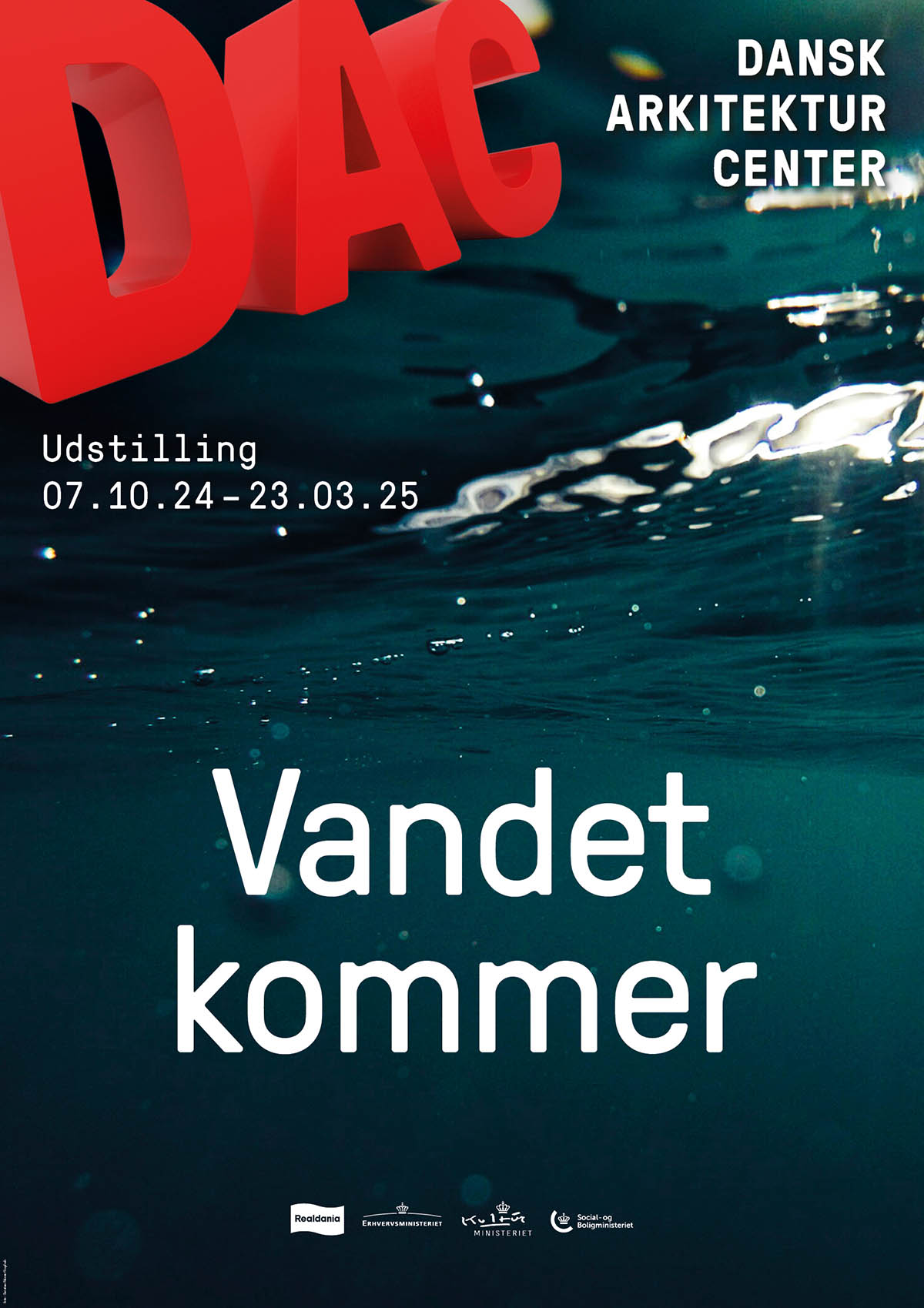
WORLDARCHITECTURE.ORG
Water is Coming
Submitted by WA ContentsWater is ComingDenmark Architecture News - Dec 07, 2024 - 13:55 html PUBLIC "-//W3C//DTD HTML 4.0 Transitional//EN" "http://www.w3.org/TR/REC-html40/loose.dtd"Poles are melting, groundwater is rising, and torrential rain is flooding roads and houses. Its no longer a question of if, but when the water is coming and we must adapt to it. Danish Architecture Center (DAC) is addressing this new reality with the Water is Coming exhibition, opening on October 7, 2024. In a sensuous and poetic exhibition universe, the exhibition explores the relationship between water, people and nature in a rapidly changing world where, despite the seemingly bleak outlook, there is also hope and opportunity.Water is one of the greatest challenges of our time. Rising sea levels and more frequent cloudbursts demand radical change in urban design and organization. Cities like Copenhagen, Venice and Jakarta are already dealing with the inevitable question: How can we adapt to the water instead of fighting it?In the Water is Coming exhibition, DAC is seeking to create a deeper understanding of our dependence on water and the challenges it poses to our cities. The exhibition also presents different solutions for how we can live with water in the future. Senior curator Pernille Stockmarr explains:Were at a crossroads. Water is both a life-giving resource and a threat to our way of life. At the exhibition, we want to show that our ability to integrate and manage water will shape the future of cities and the lives of many people. We can adapt, but we have to think differently, work together, and take our outset in nature. This will yield radical solutions, and they can very well be extremely attractive.Adapting Our Cities to a World with More WaterThe exhibition presents a wide range of solutions from both Denmark and abroad that show how we can adapt to rising water levels. Concrete projects explore topics such as biodiversity, urban development, and innovative waterfront housing. There are also models and projections illustrating how scientists, architects, landscape architects and urban planners can work together to protect cities and create recreational spaces for both people and nature.The projects include Copenhagen Islands by the landscape architects at Schnherr, which shows a vision for the future Copenhagen in which new urban spaces emerge naturally from the citys original landscape and the natural flow of water. The current climate resilient neighborhood project in sterbro, created by SLA, THIRD NATURE and LYTT Architecture is transforming an entire neighborhood into a water-management oasis with rainwater collection and green urban spaces. And Enghaveparken in Copenhagen demonstrates how urban spaces can collect large amounts of rainwater and act as recreational areas.On a larger scale, the exhibition presents the Lynetteholm project as an example of combined urban development and storm surge protection, and Niederhafen in Hamburg, designed by Zaha Hadid Architects, shows how river promenades can protect against storm surges while creating open, social urban spaces.The exhibition also presents short films showing how Danes are already living with water as a central part of their everyday lives. The projects show how climate adaptation can be approached in many different ways from local initiatives to large infrastructure projects, and from nature-based solutions to technical constructions. However, the solutions often point in different, and sometimes contradictory directions, and some has also sparked public debate. The exhibition invites visitors to reflect on these perspectives and form their own opinions to promote a valuable dialog about future climate adaptation.Sensory Installations Visitors enter a sensuous scenography of blue-green textiles that float from the ceiling like waves. The Water Drops installation is a sensuous experience of the coming of rainfall. The textile installation Sky & Sea invites visitors to look up and observe the organic waves and beautiful colors. Visitors to the exhibition can also try their hand at several computer games and navigate fictional future universes characterized by rising waters.There are also contributions from the Danish Pavilion at the International Architecture Exhibition La Biennale di Venezia 2023, including the scenographic installation Mermaid Bay, created by Christian Friedlnder as part of the Coastal Imaginaries exhibition, curated by Josefine Michau. Visitors meet a dramatic staging of a future coastal landscape, partially engulfed by the sea. Through a sensuous scenography of light and sound, the fragility of the coastal landscape and the harsh realities of climate change are depicted in a magnificent diorama. The installation conveys a deeper understanding of nature-based design in wetlands.With Water is Coming, DAC wants to inspire visitors to reflect on the role of water in the future and actively join the debate about how we can live with, protect and preserve this essential resource for future generations.The Water is Coming exhibition has been developed by Danish Architecture Center.Exhibition factsExhibition title: Water is comingOrganizer: Danish Architecture CenterLocation: Bryghuspladsen 10, Copenhagen, DenmarkDates: October 7, 2024 March 23, 2025Top image courtesy of Danish Architecture Center.> via Danish Architecture Center
0 Yorumlar
0 hisse senetleri
34 Views


